- News
- Reviews
- Bikes
- Components
- Bar tape & grips
- Bottom brackets
- Brake & gear cables
- Brake & STI levers
- Brake pads & spares
- Brakes
- Cassettes & freewheels
- Chains
- Chainsets & chainrings
- Derailleurs - front
- Derailleurs - rear
- Forks
- Gear levers & shifters
- Groupsets
- Handlebars & extensions
- Headsets
- Hubs
- Inner tubes
- Pedals
- Quick releases & skewers
- Saddles
- Seatposts
- Stems
- Wheels
- Tyres
- Tubeless valves
- Accessories
- Accessories - misc
- Computer mounts
- Bags
- Bar ends
- Bike bags & cases
- Bottle cages
- Bottles
- Cameras
- Car racks
- Child seats
- Computers
- Glasses
- GPS units
- Helmets
- Lights - front
- Lights - rear
- Lights - sets
- Locks
- Mirrors
- Mudguards
- Racks
- Pumps & CO2 inflators
- Puncture kits
- Reflectives
- Smart watches
- Stands and racks
- Trailers
- Clothing
- Health, fitness and nutrition
- Tools and workshop
- Miscellaneous
- Buyers Guides
- Features
- Forum
- Recommends
- Podcast
review
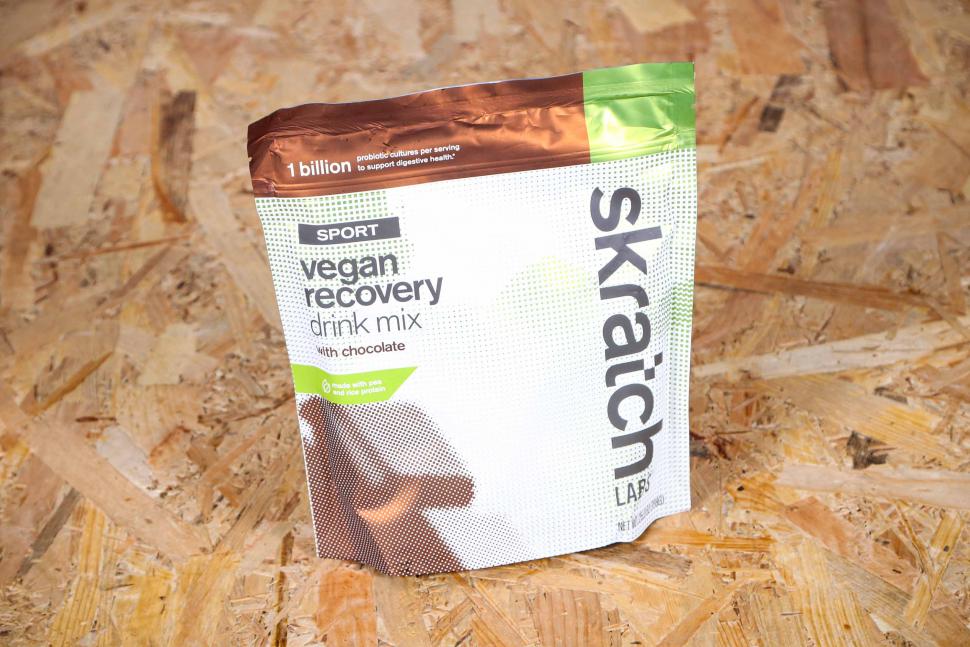 2023 Skratch Labs Sport Vegan Recovery Mix
2023 Skratch Labs Sport Vegan Recovery Mix£36.95
VERDICT:
Convenient but pricey way to effectively recover after a hard ride
Plant-based
4:1 carbs to protein for recovery
Tastes good
Easy on the stomach
Expensive
A lot of added sugar
Weight:
736g
Contact:
At road.cc every product is thoroughly tested for as long as it takes to get a proper insight into how well it works. Our reviewers are experienced cyclists that we trust to be objective. While we strive to ensure that opinions expressed are backed up by facts, reviews are by their nature an informed opinion, not a definitive verdict. We don't intentionally try to break anything (except locks) but we do try to look for weak points in any design. The overall score is not just an average of the other scores: it reflects both a product's function and value – with value determined by how a product compares with items of similar spec, quality, and price.
What the road.cc scores meanGood scores are more common than bad, because fortunately good products are more common than bad.
- Exceptional
- Excellent
- Very Good
- Good
- Quite good
- Average
- Not so good
- Poor
- Bad
- Appalling
Skratch Labs Sport Vegan Recovery Mix is a tasty and easy-to-digest recovery drink, which helps to restore the fuel in your body after a long or intense ride. It's rather expensive, though.
We reviewed Skratch Labs Sport Recovery Drink Mix about five years ago, and now there's a bang-up-to-date vegan version, but what makes it different?
It's a similar proposition, being that it's a recovery drink designed to help you, well, recover after a particular long or arduous ride. The key difference between this new version and the old one is that it replaces the dairy milk with plant-based proteins and fats, in this case pea and rice protein, and medium chain triglycerides (derived from coconut).
That aside, they're very comparable. Looking at the ingredients list of the chocolate dairy version, for the closest comparison to the vegan chocolate version (which is the only flavour you can get), they both contain cane sugar, cocoa powder and cocoa extract, salt, and Bacillus coagulans GBI-30 6086 (probiotic) which is added to help ease the digestion process.
In terms of raw numbers, the vegan version contains a higher number of calories – 230 versus 200, 6g of fat versus 3.5g, 500mg of sodium versus 270mg, 40g of carbs versus 35g, 3g of fibre versus less than 1g, and 10g of protein versus 8g. In terms of vitamins, the vegan version has 4mg of iron versus 1.7 for dairy, though there's only 61mg of calcium and 81mg of potassium compared with the dairy at version at 255mg and 392mg respectively.
All told, it's fair to say the vegan version is more potent than the dairy one in terms of the numbers that matter. Interestingly, they both had about the same amount of sugars (34g for plant-based versus 33g for dairy) but the vegan version has 34g of added sugars, while the dairy one only has 22g of added sugars.
> What should you eat to recover after cycling?
Like the dairy version, the vegan product is a two-scoop affair. Add this to about 350ml of water, shake it up, and you're good to go. I found that using a blender helped to create a smoother drink without lumps, even though Skratch says you don't need to.
My prior experience with recovery drinks, especially the type that prioritises protein over anything else, is they tend to be a bit sickly and overly sweet. With the Sport Vegan Recovery Mix I was pleasantly surprised by how palatable it is, with a flavour profile that reminds me of consuming far too many Nesquik chocolate drinks as a child. Yes, it's still a bit sweeter than I would ideally like (34g of added sugars is a bit too much in one serving), but it's very easy to drink, and unlike some products that give me stomach issues after exercise, I had zero problems with this recovery drink.
Back to the nutrition side of things for a moment – after a workout I typically have a protein drink (or some kind of protein-biased snack) containing about 20g of plant-based protein (with another 8g on top from combining it with soy milk).
I was a little disappointed to find that you only get 10g from the Sport Vegan Recovery Mix, which to me doesn't seem like much. However, it's important to note that Skratch Labs clarifies this by stating that 'the 4:1 carbohydrate to protein ratio speeds up recovery faster than protein alone by replacing your glycogen stores'.
At the end of the day, the goal with this kind of product is to prioritise recovery over muscle building, although Skratch Labs does add that the 'pea and rice protein provide the complete essential amino acid profile to accelerate muscle repair and growth'. So although you're not getting big numbers, you're getting the best kind of protein for your body, delivered in a more effective way.
> Read more road.cc reviews of energy and recovery drinks
Sadly, I don't have access to a private test lab with a few pro cyclists to test the before and after effects of the Skratch Labs Sport Vegan Recovery Mix, so you'll have to make do with my anecdote. I drank a serving almost immediately after exercise – on two occasions after a local 20-mile lunchtime loop that I like to ride as hard as I can, and after two 60-plus-mile gravel events. Although the drink didn't appear to make me feel any less tired on the same day, the following day I noticed that I felt better than I normally would, to the point where I would even consider riding again.
Value
Each 708g bag is good for 12 servings, according to Skratch Labs, and at £36.95 it works out at about £3 per drink, which is on the expensive side, in my mind.
As tends to be the case with vegan products, in my experience anyway, the vegan version of the same product is more expensive, and that's certainly the case here.
If you were to opt for the regular version, which costs £33.95 for the same 12-serving bag, it works out at £2.83 per drink. That still seems expensive to me, but it's cheaper than the vegan version.
Torq Recovery Drink, which we reviewed a few years ago, comes in a Creamy Cocoa vegan version, and costs £21.95 for a 500g bag which gives you six servings, or £3.66 per drink.
Yes, it's more expensive, but its 3:1 carbs to protein ratio gives you a higher carb rating at 47g, and a significantly higher protein rating of 24g. There's no added sugar, either.
Conclusion
Though Skratch Labs Sport Vegan Recovery Mix might not have the highest protein numbers, which could potentially put some people off who obsess over those post-workout numbers, it does have a good amount of carbs, and it's those that are the key factor in helping you restore your glycogen stores, so your body can recover. It's an expensive way to do so, mind, so if convenience isn't something you care about, you could get the same 4:1 carbs to protein simply by eating a combination of certain whole foods (an apple and some peanut butter, for instance).
Verdict
Convenient but pricey way to effectively recover after a hard ride
road.cc test report
Make and model: Skratch Labs Sport Vegan Recovery Mix (708g)
Size tested: 708g
Tell us what the product is for and who it's aimed at. What do the manufacturers say about it? How does that compare to your own feelings about it?
Skratch Labs says, "Our Vegan Recovery Sport Drink Mix is intended for use immediately after exercise, especially when that bout of exercise leaves you feeling hungry, when you don't have a meal made from scratch readily available, and when you want to fast track the recovery process.
Skratch Labs Vegan Recovery Sport Drink Mix provides the proper balance of plant-based proteins, fats, and carbohydrates to speed your recovery. It offers the same nutritional profile as our dairy milk-based sport recovery mix, just vegan.
Vegan Recovery Sport Drink Mix is for vegan athletes who need something delicious and convenient to drink immediately after emptying the tank in long, hard workouts, we created Vegan Recovery Sport Drink Mix. When you shake up this frothy, smooth drink, its chocolatey aroma may just conjure up memories of opening your favorite candy bar as a kid. You'll taste the robust cocoa flavor that comes from real chocolate and the delicious sweetness of cane sugar. As with all of Skratch products, our Vegan Recovery Sport Drink Mix does not contain any artificial sweeteners or flavoring agents, something rare in the vegan protein space.
Made with only plant-based protein, a serving of Vegan Recovery Sport Drink Mix has what you need to rapidly refuel, rehydrate, and rebuild so you can go big again tomorrow. Its 4:1 carbohydrate to protein ratio speeds up recovery faster than protein alone by replacing your glycogen stores. The 10 grams of pea and rice protein provide the complete essential amino acid profile to accelerate muscle repair and growth, plus 1 billion probiotic cultures to support digestive health. This vegan protein mix is delicious, easy to drink, and easy on the gut.
And ya, it's Non-GMO, Gluten Free, Dairy Free, and Kosher too."
Tell us some more about the technical aspects of the product?
Cane Sugar, Dextrose, Pea Protein, Medium Chain Triglycerides (Derived from Coconut), Cocoa Powder, Rice Protein, Cocoa Extract, Gum Acacia, Salt, Vanilla Extract, Bacillus coagulans GBI-30 6086 (Probiotic)
Rate the product for quality of construction:
8/10
Resealable bag with a scoop included.
Rate the product for performance:
8/10
Delivers a decent amount of carbs in a 4:1 ratio, though some might think the protein a little low.
Rate the product for value:
5/10
Cheaper per serving than Torq Recovery Drink, though that delivers a higher carb rating and a significantly higher protein rating.
Eating whole foods might not be as convenient, but it's a lot cheaper.
Tell us how the product performed overall when used for its designed purpose
Good taste, easy to drink, and seemed to help with recovery.
Tell us what you particularly liked about the product
Convenience.
Tell us what you particularly disliked about the product
A lot of added sugar.
How does the price compare to that of similar products in the market, including ones recently tested on road.cc?
It's expensive. Torq Recovery Drink (the Creamy Cocoa vegan version) costs more at £3.66 per drink (versus £3 for the Skratch Labs), but if you favour a 3:1 ratio of carbs to protein, you might prefer the Torq.
Did you enjoy using the product? Yes
Would you consider buying the product? No, it's too expensive.
Would you recommend the product to a friend? Maybe
Use this box to explain your overall score
It's good: an easy way to help in recovering after a hard ride. It tastes good and doesn't cause any stomach issues, but it'll cost you.
About the tester
Age: 39
I usually ride: Condor Italia RC custom build My best bike is:
I've been riding for: 10-20 years I ride: A few times a week I would class myself as: Experienced
I regularly do the following types of riding: commuting, touring, club rides, sportives, mtb,
Latest Comments
- BikingBud 51 min 36 sec ago
So he was being innovative and not ossifying then? Make your mind up!...
- mdavidford 56 min 49 sec ago
I know he's been famously arrogant and litigious, but surely even he doesn't have the gall to attempt to patent that?
- mdavidford 1 hour 29 min ago
Now I don't do any of this InstaTok business, so I could well be wrong, but it looks to me like he's only outed himself as a follower of someone...
- amawby 1 hour 49 min ago
Not unless theVED is made eye wateringly expensive....
- mdavidford 1 hour 59 min ago
My mum always told me I'd inherited her 'hobbit feet', though as far as I'm aware we don't have any family in New Zealand.
- andystow 2 hours 17 min ago
Hyponatremia is a real risk even for an amateur cyclist or runner in hot weather. I've bonked from it before, and I was drinking Gatorade the whole...
- wtjs 2 hours 59 min ago
in the UK we have policing which to a greater or lesser extent relies on assistance from members of the public......
- SecretSam 4 hours 17 min ago
So...don't cycle on it. Lots of other routes around that area. Source: I used to work there.
- Steve K 4 hours 37 min ago
My photochromic specs have just turned up in the post today
- Paul J 4 hours 44 min ago
Downhill Alpe d'Huez TT would be _awesome_. And someone should organise one for real!...
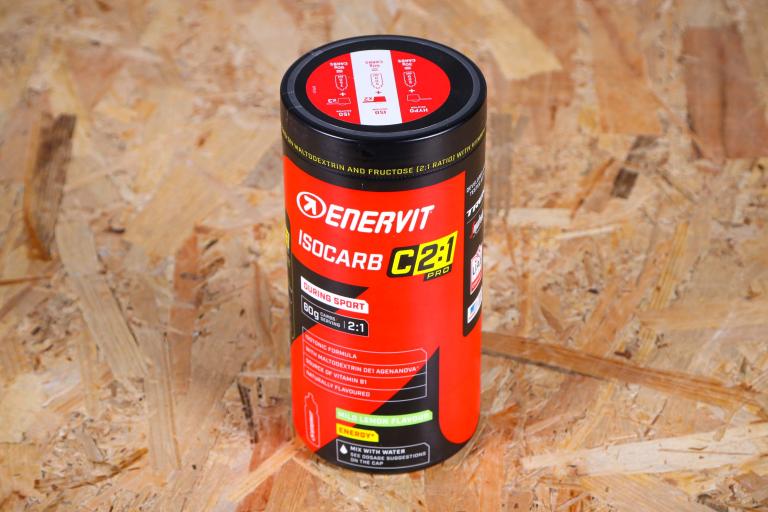
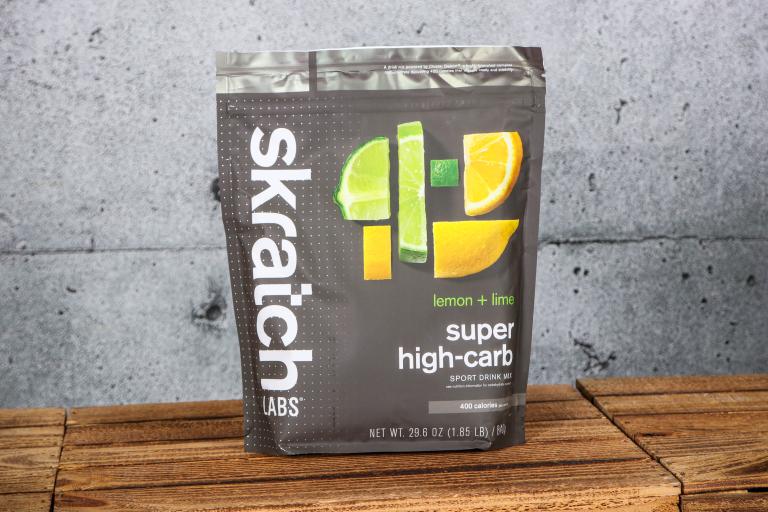
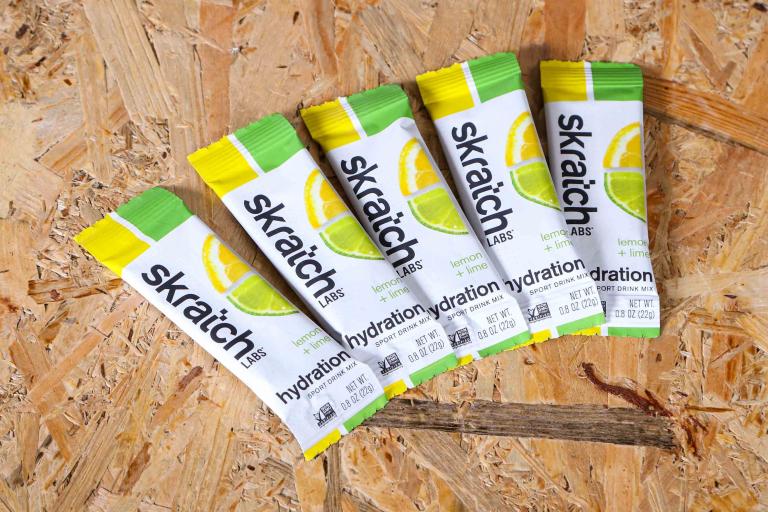
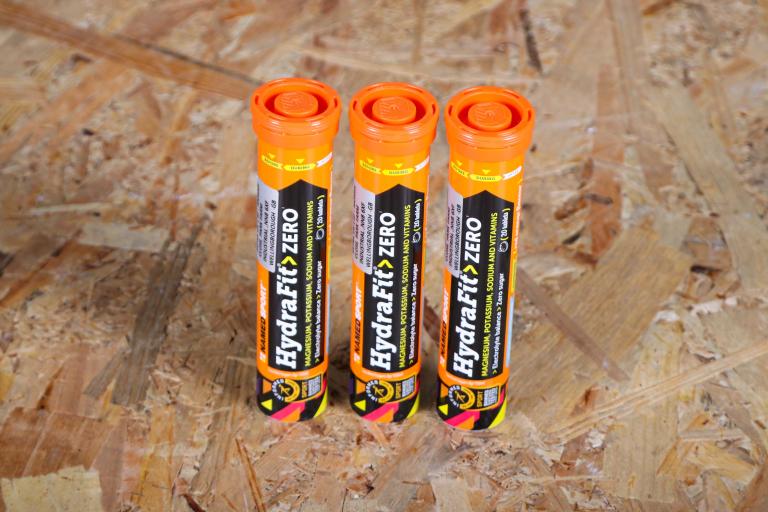
Add new comment
10 comments
Alternatively you could just eat real food, you've probably got some at home already.
Stuff that's real is becoming a rarity in our post modern lives. Highly processed artifice consisting mostly of packaging, PR and pulverised feedstocks which themselves are often putative (believed by the naive to be foodstuffs but actually having low nutritious value plus a lot of carcinogens employed to make them grow bigger whilst killing any wildlife that dares to enter the growing place) - this is now the majority of supermarket and similar fud.
It now takes significant time, effort and spend to find "real" foodstuffs. One must go about the small growers and sellers that may be found attempting to grow unadulterated high quality stuff and the small makers using these stuffs to make actually nutricious bread, pies et al.
For we lucky boomers who have a pension and no cash-sucking landlord to service, there is time to find & use basic "real" ingredients to cook up fine and nutricious eats, even the sort that can service we avid cyclists with our energy & health requirements. Many have no such time, or the money, to buy proper food since they have 3 gig-economy "jobs" per householder as well as that landlord sucking out their wallets ...... .
***********
Why do websites like this go along so readily with the purveyors of ever more expensive stuff (including spurious goos and powders like the subject of this review)? Is cycling actually becoming the new golf, with only what used to be called the middle clarsses able to afford even the most basic of equipment and accessories to a cycling life?
Cue Toryites with bleats about "choice".
I mean, you are talking complete rubbish. Its never been easier or quicker to make cheap and nutricious meals. There is absolutely nothing wrong with the food that you can get from supermarkets and the choice is mindboggling. This country has a health epidemic because people are lazy and can't be bothered, not because of a lack of availability. We get a shop delivered to our house whenever we want within a 1 hour timeslot. Cooking a nutritious meal doesn't need to take much time and if you really want to push the boat out you could even batch cook to save time.
This weird fetish for making up excuses for people does no one any good. A tiny tiny tiny fraction of the population has no time to cook. Absolutely tiny. The vast majority would just rather sit in front of the TV for hours every evening doomscrolling their social media instead of cook.
Back on topic, yes this is ridiculously expensive and yes people do have choice. That has nothing to do with politics but that is quite hard for a lot of people not to sneak into every argument these days isn't it.
Perhaps I'm just a Tory and I don't realise it.
You are Lee Anderson ("top nutrition advocate") and ICMFP!
This is like "people could walk and cycle but they drive cars because they're lazy". You are quite correct. However - when have people not been lazy? Has there been a moral collapse?
"It's the environment, stupid" - with the addendum that the environment includes "culture" e.g. other people and interpersonal relations.
Historically we are in an unprecedentedly resource- and possibility- rich environment (and no-one is shooting at us etc.)! However that environment is also obeseogenic and driveogenic.
Again you're correct - it's never been easier to do many things. However our inbuilt biases (do what other "successful" people are doing, conserve energy, feasting / fats / sugar are good...) will tend to direct our behaviour down certain tracks. And there are lots of new paths which also lead to "drive to sedentary work, pick up ready meal on way home to watch in front of TV / while on internet". You can certainly opt in to more movement, exercise, better food etc. However you will have to make mental effort to steer onto those tracks and once you're there the environment (other people!) will tend to nudge you back.
I'm not saying there aren't reasons for it but making excuses like "healthy food is expensive" and "people have no time to cook healthy food" is complete BS. Its just easier not to eat healthily. Simple as that. I could always make a healthy meal for less money than it costs to eat something pre-made that is unhealthy.
Part of what you are saying, which is entirely true, is that society is setup to push a certain consumption. Part of that however is normalising the idea that its entirely external factors that are preventing you from being healthy (no time, expensive) and absolving the individual of personal responsibility. "Its not your fault you're unhealthy, its societys fault".
[Rabbit hole alert]
Now this is a subtle point. The difficult truth is that not all human choices are as "free" or rationally made as we like to think. Not only that but this varies over circumstance, time and even within an individual. Will a logical intervention have unintended consequences because humans have their own range of sensitivities (not to say triggers) and our decision-making is primarily emotional / based on pattern-matching? (Also ignoring the fact that when unsure we often rely on trusted others - who will have their own agendas).
It's tricky because people can see a different message than the one you think you're putting out and do react to those messages (even if implicit). Trivially - like telling people not to think of an elephant. Or like never seeing someone who looks like you in certain roles.
If you "treat the symptoms" and say "lots of people *are* making less healthy choices; let's look at the system and see if something there can be changed" it's possible that people will think "I'm powerless" or "it's not my responsibility".
On the other hand trying to effect change by judging them and making it a moral thing ("lazy") may work to motivate some, sometimes. The parent / teacher / sergeant major shouting at you or the lure of a role model saying "be like me" can work. But negative motivation definitely alienates and demotivates lots. If your "intervention" relies on persuasion alone then causing people not to engage is totally counter-productive in their cases.
Of course - the poor are undeserving, lazy, stupid and the cause of their own degradations. Tory spivs and mafia-like businesses are just an excuse since everyone not getting a high-paying executive position or owning plenty of lucrative shares is just a loser! They should spend their one hour leasure time a day picking and boiling nutricious whelks or nettles, not relaxing, the rascals.
On the other hand, I've found that the rather more realistic explanation for being able to avoid the degradations of our current SSO (society-shaped object) allowing a little prosperity goes more like ..... :
I was lucky enough to be born at a time and place with curbs upon the Toryspiv and profiteering criminal-types, so had some real & decent choices; and was encouraged in all sorts of ways to take them, not least by receiving a fine & free education after the malt, rosehip syrup. school milk and jabs.
But for that Attlee and his pals, I would likely have been just another dead child full of some filthy disease accelerated by malnutrition; or perhaps a miner-slave dead of lung rot at 50.
However, seeing as how Toryspivery is now the only available option, perhaps we can all take the advice of that recent tele program skit to eat each other, epsecially the tender but surplus children? (They stole the notion from Jonathan Swift, mind). This will be a proper and fitting exercise in Social Darwinism, as proposed by any number of pin-striped gharks & hoos.
Some of it is fine (fresh/frozen fruit/veg, dired foods etc) but much is ultra-processed 'food'.
There are lots of choices. However, much of this comes from liberal economics treating the ecosphere as a free dumping ground for waste and a source of resources at minimal cost.
It's very difficult to know which of the foodstuffs sold in supermarkets and elsewhere are truly "fine" - created without many of the dangerous processes & substances often employed in not just (over) refining edibles but in growing the basics such as fruit & veg. Its increasingly difficult to find fresh food that hasn't been sprayed with many kinds of insecticides, growth factors and preservatives that are suspected as possible causes of all kinds of harms, from cancer to alergies. Of even the functioning or survival of essential pollinaters.
The latest research indicates that many highly commercialised food production processes have introduced attributes of what is sold in the form of many kinds of harms, both to the consumers and the environment in general. The investigations, checks and regulations supposedly made to curb these harmful factors have been suborned by the producers and their political helpmeets, via so-called self-regulation, the "cutting of red tape" and even the infiltration of academic science departments by bought & paid for (by the food producers) agents.
So, even if a few of Mr 23's undeserving and lazy poor manage to find the time, money and motivation to employ supposedly prime ingredients to make what they eat, there's no guarantee that the super or other mass market items will be either a healthy or an inexpensive choice. Profit making, in the form of cost reductions or plain greedflation, is now the be-all and end-all. Advertising and ever-increasing monopolies in the supply chain make sure we go along with this. No choice at all, for many.
I don't disagree with much of what you are saying but basically no one in society is eating completely "clean and organic" produce from those people earning more in a day than most earn in a year all the way down to those earning a pittance.
Fundamentally there is nothing wrong with the mass produced food we eat. The average person is doing far more damage to themselves from the million decisions they have complete control over than the small amount that might be done by the way fresh fruit and veg is grown these days.
Before I gave even a second thought to eating organic, unadulterated produce as a priority there are a dozen other things I could do that would make far more difference to my health and I am in good shape.
If you aren't engaging in even the simplest of act like cooking your own food and eating plenty of veg then you can't start to complain about the adulteration of our supply chain.